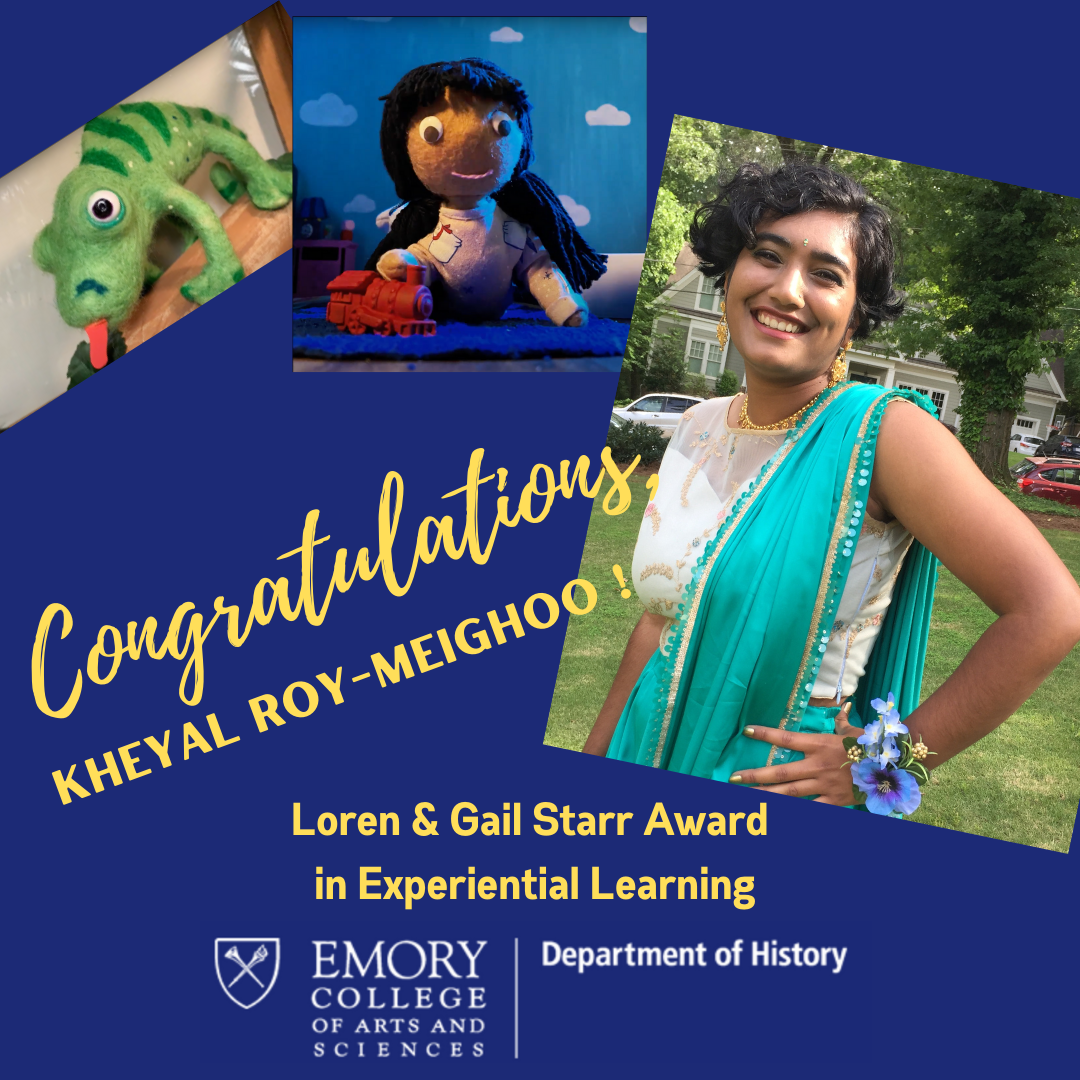The Department of History is delighted to award one of the new Loren & Gail Starr Awards in Experiential Learning to Honors student and film studies major Kheyal Roy-Meighoo for the Summer of 2022. She will create short animated film, “Backwards,” about the historical connections between the Covid-19 pandemic and Asian exclusion laws.
Kheyal’s work in stop motion films has been winning praise. Last December, she received the Women in Film and Television Atlanta 2021 Scholarship. Recent projects include “The Great Escape” & “My Bunny’s Story.” Check out her YouTube channel: www.tinyurl.com/KheyalRM.
She writes that “All of the History faculty I have taken classes from have been fantastic!” and praises the department for being so supportive. “It has always encouraged me to draw on my love of film in my historical studies,” she explains. She expressed special thanks to her advisor, Prof. Chris Suh, who has encouraged Kheyal to make films since her first year at Emory. Kheyal notes that “Not only has he taught me so much about Asian American history, but he has taught me how Asian American filmmakers have tacked historical (and current) social and political issues.”
Established in 2022 through a generous donation, the Loren & Gail Starr Award provides summer funding for experiential learning projects proposed by History majors, joint majors, or minors. The Starr Award is intended to support students who wish to use the knowledge and skills they have acquired in history courses to create or participate in projects in settings outside of the classroom. Bold, creative, and off-the-beaten path proposals are encouraged. The only rule is that engagement with the past be central to the experience undertaken by the student. We will offer a second round of these awards in the fall.
We look forward to seeing “Backwards” at the end of the summer! This fall, all of the winners of our summer funding awards will make presentations on their projects and their research experiences to the History Department.







